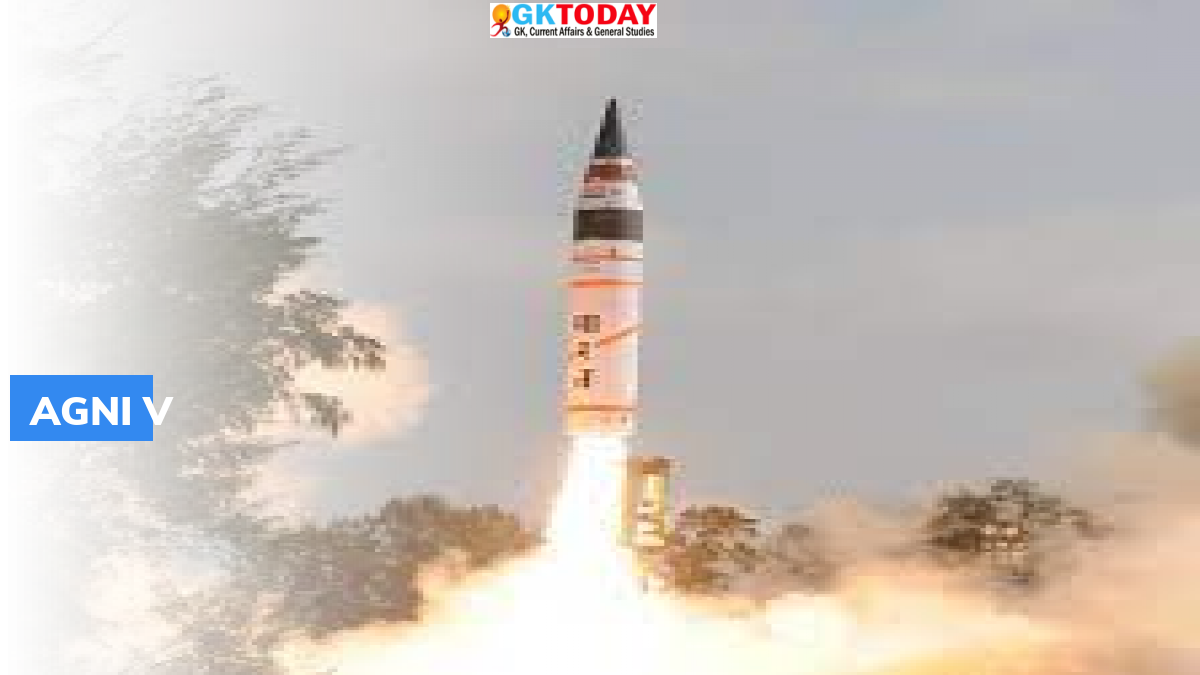Agni-5
Agni-V is an Intercontinental Ballistic Missile (ICBM). It is capable of carrying nuclear warheads. It was developed by the Defence Research Development Organisation (DRDO) of India. The missile range is between 5,000 km and 8,000 km.
About Agni-V
The Agni-V is a three stage, solid fuelled and road-mobile ICBM. The ICBM are those missiles that have minimum range of 5,500 km and are capable of carrying nuclear weapons. The Agni-V is transported in a truck and is launched by a canister.
Guidance Control of Agni V
The Agni-V is a three-stage solid fuel missile. The missile is guided by a ring laser gyroscope based inertial navigation system. The ring laser gyroscope operates on the principle of Sagnac effect. The inertial navigation system uses a computer, rotation sensors and motion sensors. It continuously calculates the orientation and velocity of a moving object without an external reference. Agni-V is also equipped with another guidance system called the MINGS (Micro Inertial Navigation System). The MINGS is a back up guidance control system to Agni-V. All these systems are capable of contacting the satellite navigation systems (both Indian and non-Indian). They were developed by the Research Centre Imarat (located in Hyderabad and operates under DRDO).
Mobility of Agni V
The missile is easily transported using trucks. It uses a canister and is launched from it. The canister is made of maraging steel. The maraging steel is known for its superior toughness and strength without losing its ductility. They have low carbon. The maraging steel canister provides a sealed atmosphere for the missile. This increases the life of the missile. When the missile is fired, the canister absorbs 300 to 400 tonnes of stress to eject the 50 tonnes of missile.
Test launches of Agni-V
The first test launch of Agni-V was made 2012. The second launch in 2013. The third, fourth, fifth, and sixth launches were made in 2015, 2016, January 2018 and June 2018 respectively. The seventh test launch was held in December 2018.
User trial of Agni V
The recent user trial of Agni-V was held in October 2021. The test was in line with the “No First Use” policy committed by India. No First Use is a pledge by a nuclear power to not use the nuclear weapons unless it is attacked by an adversary (with nuclear weapon). India applies the same policy to chemical and biological warfare as well. The countries such as Russia, North Korea, USA, UK, Pakistan and Israel are against No First Use policy. China was the first country to propose the policy. However, India was the first to adopt the policy after Pokhran-II test in 1998.


